Are you thinking about enrolling your child to train Jiu Jitsu, but want to make sure it’s the martial art for them?
There are many types of martial arts out there, and the benefits they have for children have proven to be successful across the board.
Through a proper martial arts program, children learn important skills like discipline, resilience, respect for themselves and others, teamwork…
along with all the physical benefits like strength, endurance, coordination, body awareness and countless others.
But what makes jiu jitsu different lies much deeper than martial arts principles.
There’s so much hidden under the surface of jiu jitsu that will translate into every area of your child’s life
And all of the lifelong benefits jiu jitsu offers are available to you right here at Legion American Jiu Jitsu.
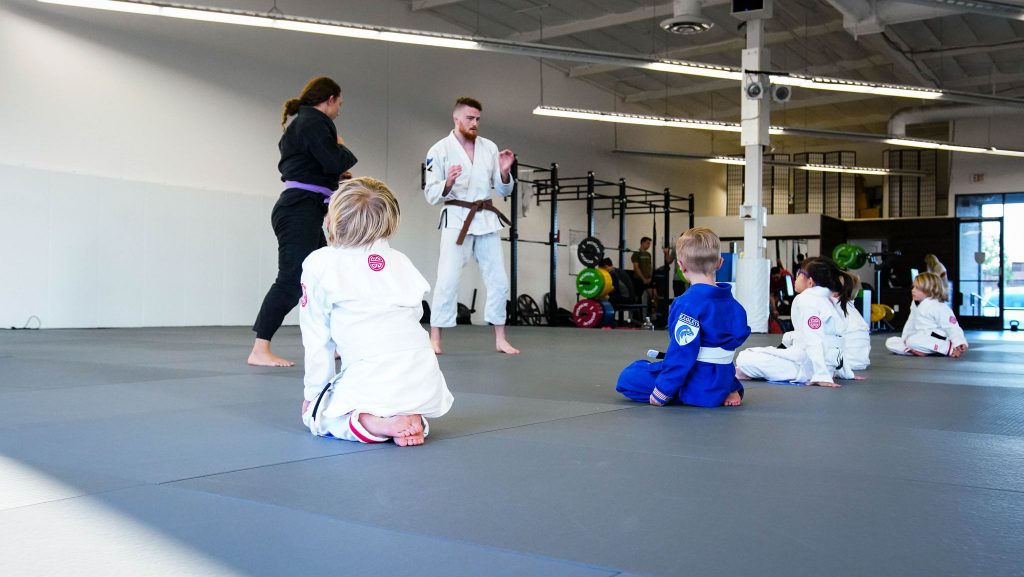
3 Ways Jiu Jitsu Will Help Your Child
1. Children will participate in a tangible, repeatable process that includes a DAILY jiu jitsu sparring
Because jiu jitsu is a grappling art, sparring can be done in a way that’s safe and repeatable.
This gives children the ability not only to learn martial arts techniques and principles, but also to apply them in real time.
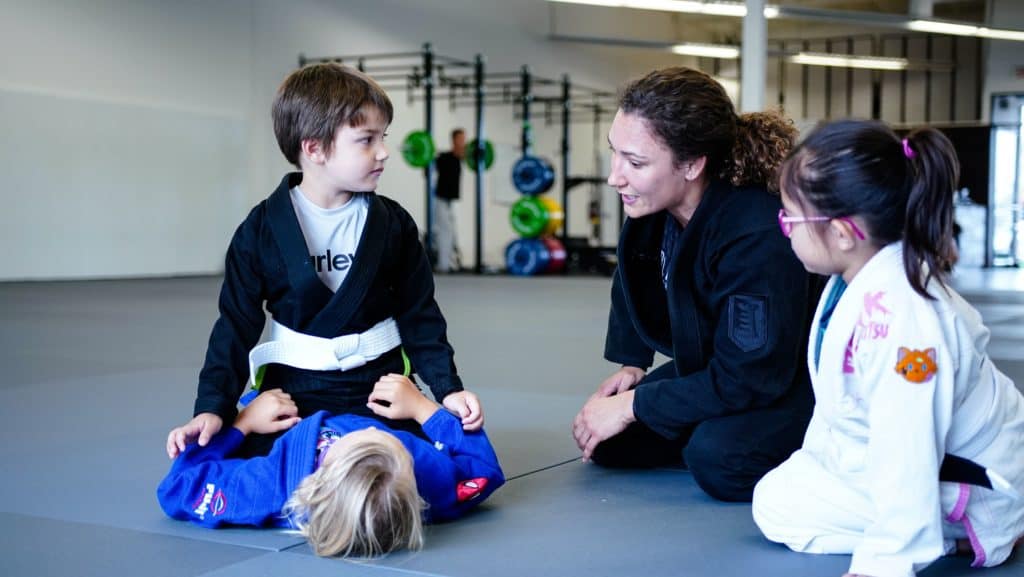
And here’s the punchline,
They get to do this EVERY day.
This gives children the ability to apply what they’ve learned on a fully resisting opponent, creating tangible progress they can see happen before their eyes.
While other martial arts may include sparring portions, what makes jiu jitsu sparring different is it’s repeatability.
It can be done every class, with very little risk of injury.
They will experience martial arts in its rawest form.
It’s fun. It’s playful. But it’s also very real.
Real in the sense that they are building skills grounded in practicality.
Grounded in experience rather than theory.
2. Jiu Jitsu will test their ego
Given what you’ve learned from the previous point, you can definitely expect your child to be physically and mentally tested in jiu jitsu.
In a child’s martial arts journey, they will experience failure.
They will lose sparring rounds.
They will be tempted to compare themselves to others.
And while this understanding may be painful at times, it also comes with one of the most important lessons a child can learn.
Compare yourself to who you were yesterday, not to who someone else is today.
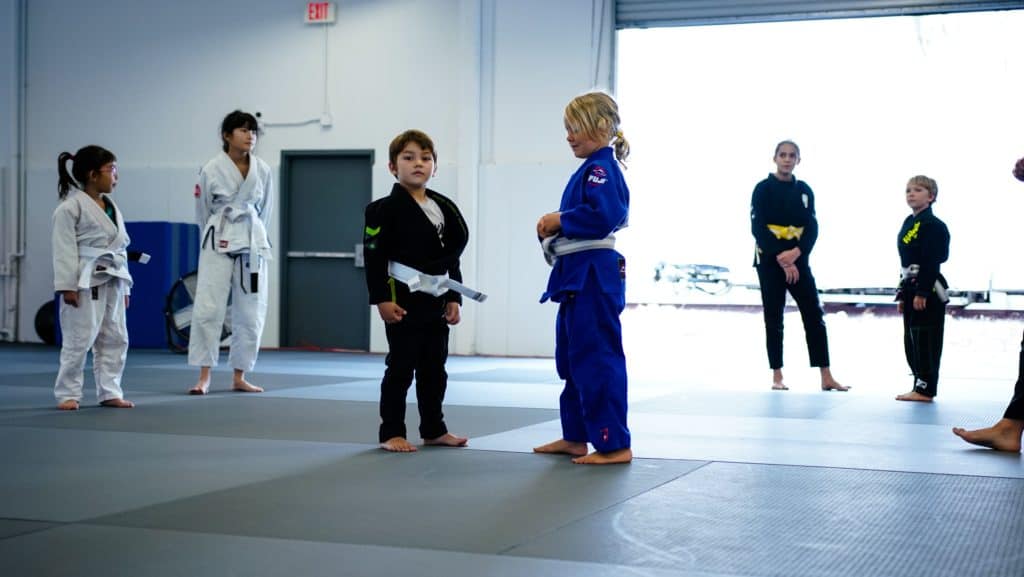
Teaching children this lesson creates a framework of personal progress.
They will learn that comparing themselves to others is a never ending battle they can’t win, so why not just focus on what they can control…
… self discipline, work ethic, resiliency, patience, and most importantly…
The construction of self-confidence is rooted in the fact that they are getting better, as opposed to self-confidence rooted in results.
Progress not perfection
Process not results.
3. Athletic ability of any sort is not a prerequisite to success
Here lies one of the most beautiful aspects of the training experience.
That regardless of a child’s coordination, body awareness, strength, size, etc,
They CAN and WILL excel at jiu jitsu with enough effort and consistency.
Not through athletic ability, but through KNOWLEDGE OF TECHNIQUE.
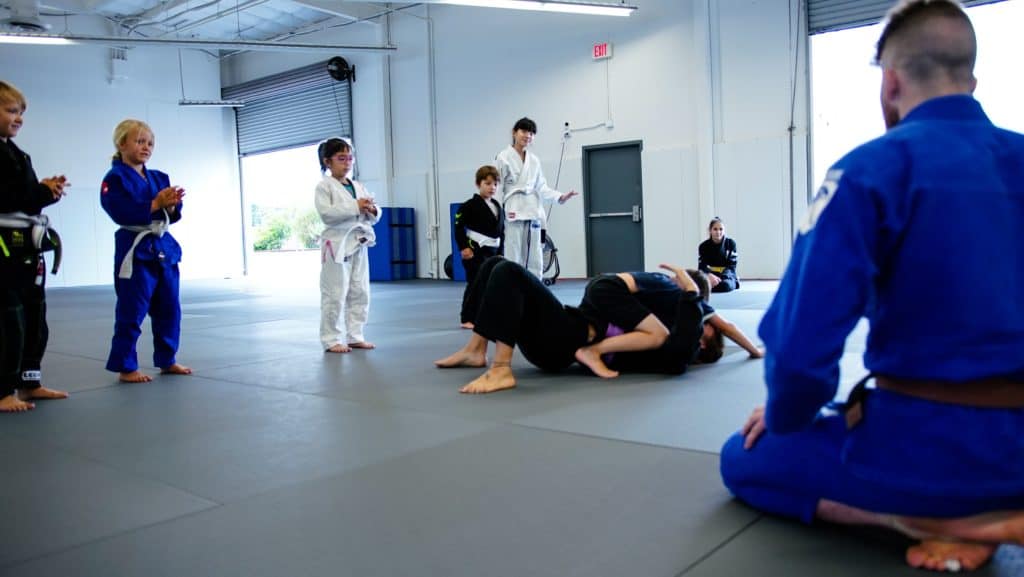
Grappling is an art specifically designed for a small opponent to beat larger opponents, and while this may also be true of other martial arts in theory,
grappling is the embodiment of this principle’s practicality.
And so what does that mean for your child?
Well, it means that they have unlimited upward mobility.
That no matter where they are starting from on a physical level, they have the ability to succeed at the highest level of this art.
And this understanding extends far beyond just grappling.
It’s a mindset that carries with it an unlimited sense of self-confidence in every area of life
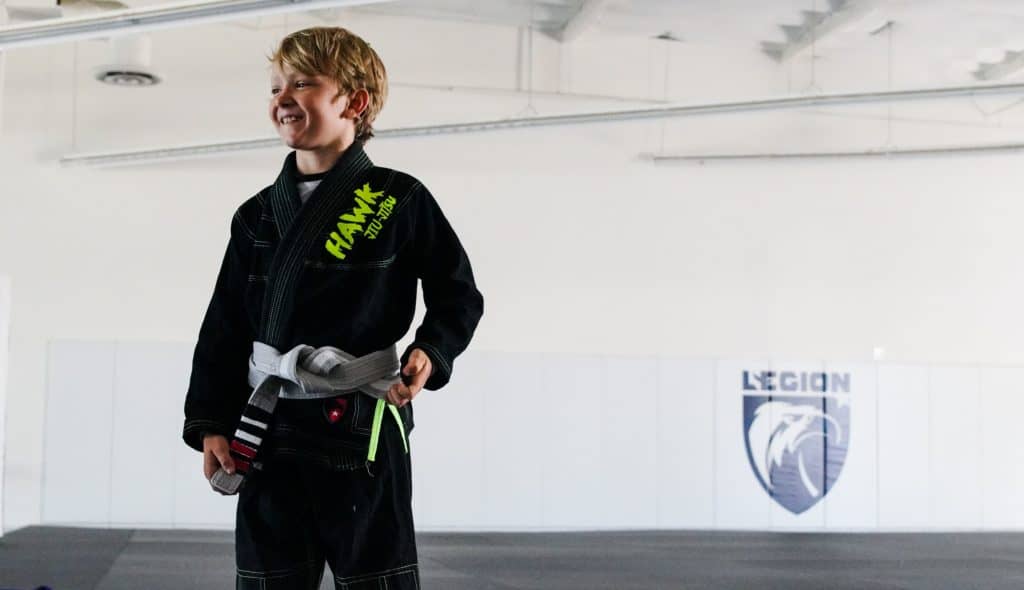
A superhero like self-confidence.
A self-confidence that is essential for your child as they trek through the challenges of life…
All available through the beautiful art that is jiu jitsu.
Where Do I Go From Here?
The benefits are clear as day…
But now it’s your job to pull the trigger.
Come on by and begin on a journey you and your child will never forget.

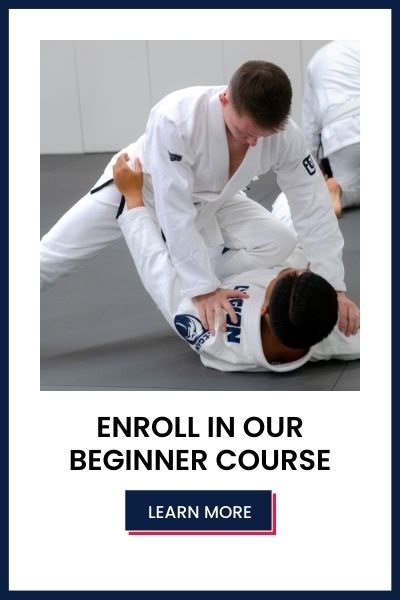
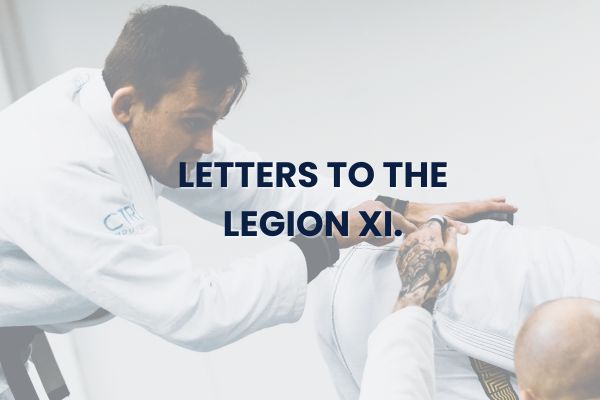
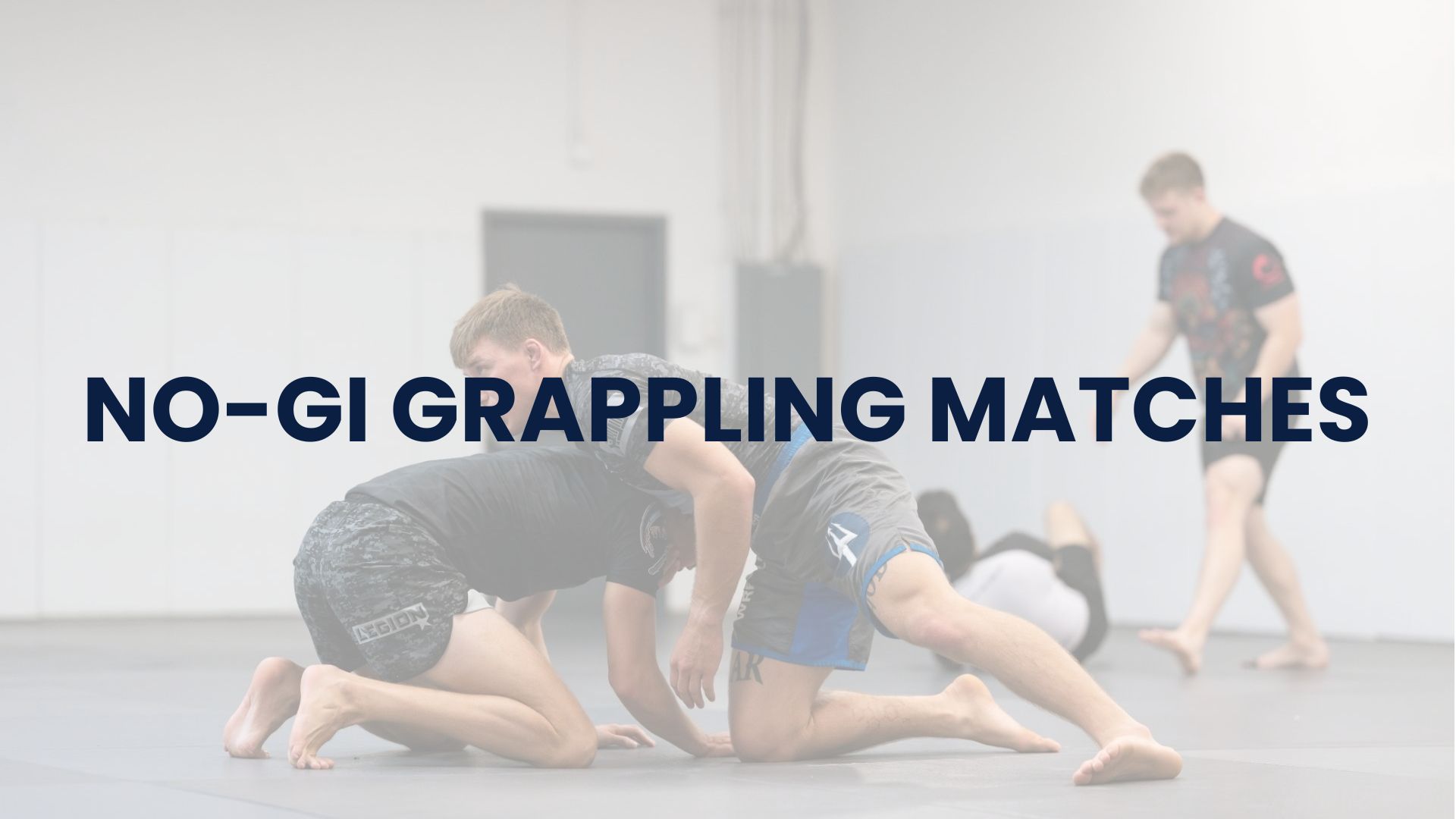
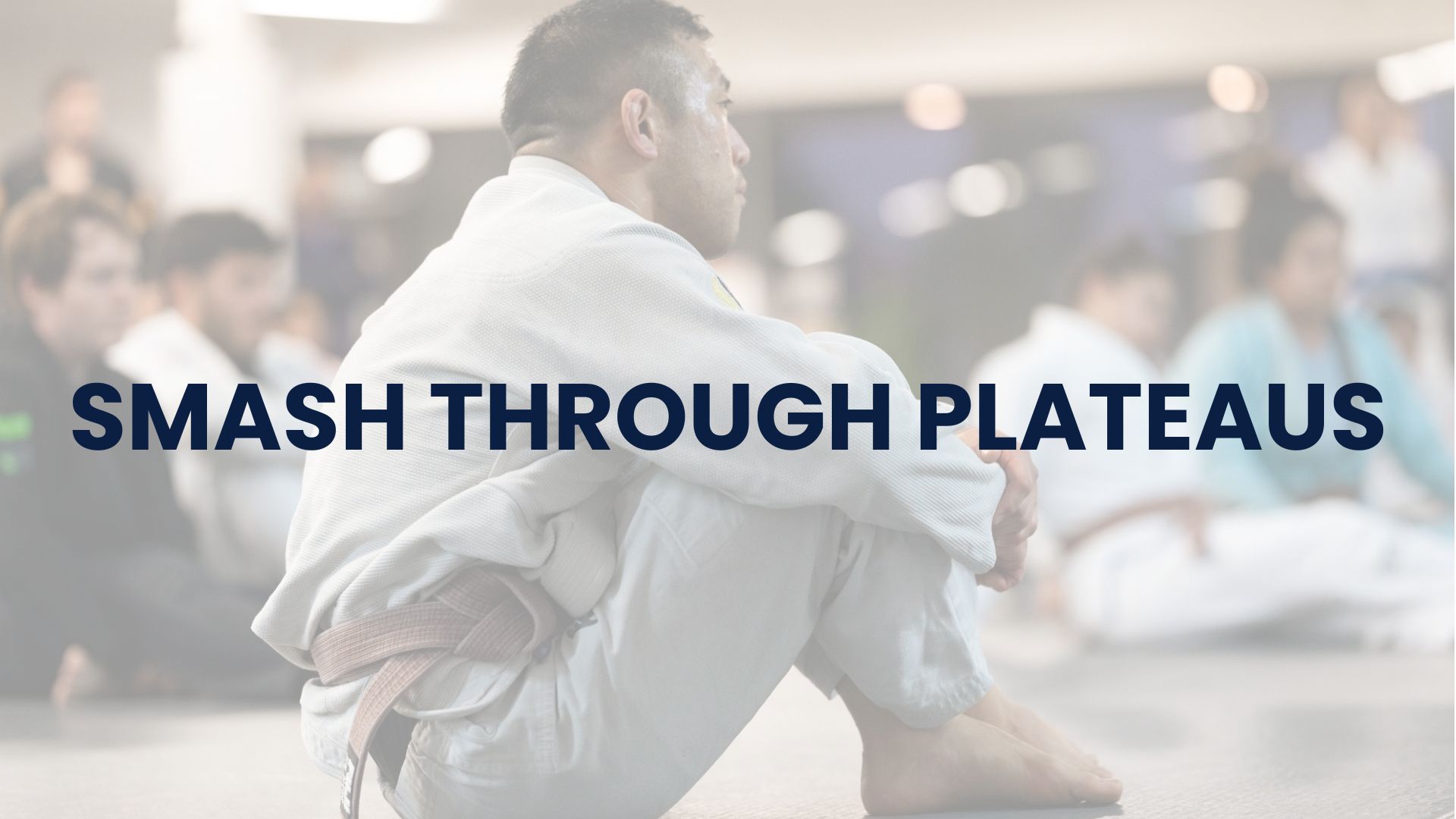


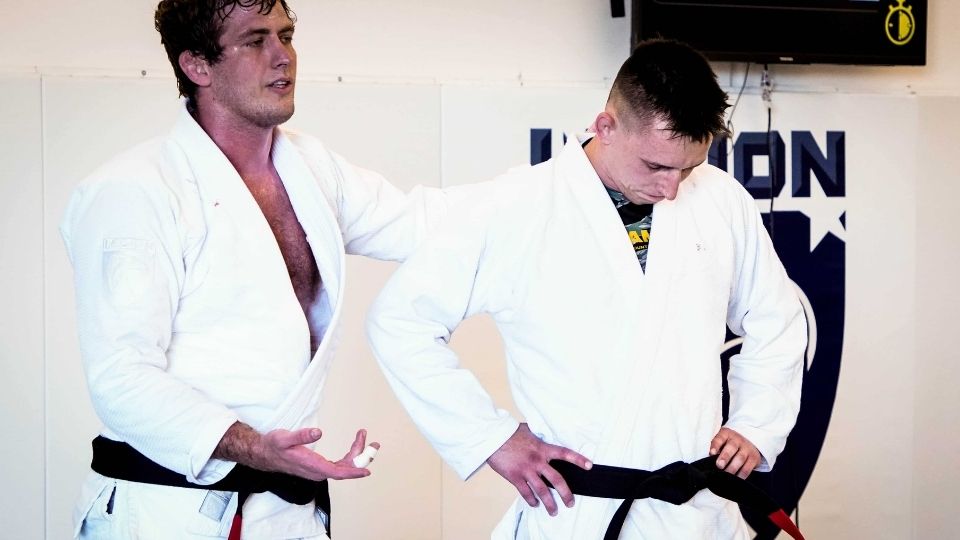
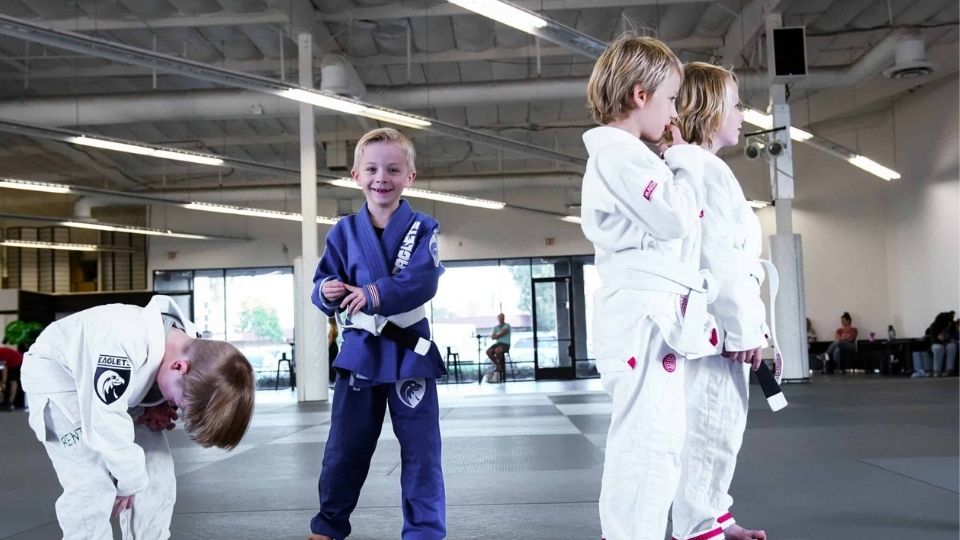
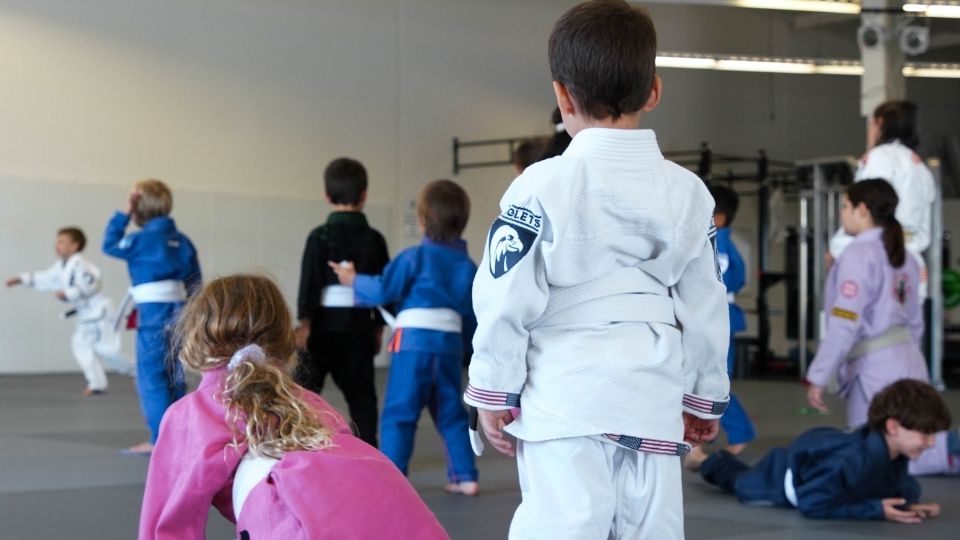
5 Responses